
 Flash News
Flash News
Directors targeted! After Fier and Durrës, Rama arrives in Elbasan
Name/Identification of the 23-year-old found dead near Shkopet Lake
IKM action in Theth, residents come out in protest
Reported missing by his father, 23-year-old found dead near Shkopet lake
Drowned while rescuing two tourists in Shkodra, search continues for the body of the captain of the tourist ship
The unexpected events that pushed the opening of the immigrant camp in Gjadër

In Albania, in the center of Gjadri, which will receive the migrants who will be sheltered there based on the agreement between the Albanian and Italian governments, the works are still continuing. Its opening, expected on August 1, has been postponed for several weeks, due to the unexpected that accompanied its construction in a deserted territory, while the center in the Port of Shengjin, where the migrants will undergo a process verification is ready. The agreement, which foresees sending to Albania, the migrants caught at sea by the Italian authorities, has been widely criticized by international human rights organizations.
Once Gjadri was known as one of the important bases of the Albanian army. In recent months, the name of this area is being spelled out more and more often, as the center is being built there where migrants will be received who will arrive based on the agreement signed by Albanian Prime Minister Edi Ram and Italian Prime Minister Giorgia Meloni.
Initially, it was predicted that the first migrants would arrive in Albania in May. Then, during her visit in June, to the port of Shengjin, to the first reception center for migrants, Prime Minister Meloni announced August 1 as the start date of this operation, which has been accompanied by many debates in Italy as well. due to the high costs that run into hundreds of millions of euros.
Italian Ambassador Fabrizio Bucci explains to the Voice of America that the construction of the center in Gjadër encountered unexpected obstacles that could not have been foreseen. "The first factor is related to the nature of the ground, which was friable. We couldn't build on a ground that was not stable. As a result, we had to do a lot of work to strengthen the ground. They are stuck in the ground , 7 thousand concrete pillars, 13 meters long and with a diameter of almost 1 meter".
A second factor that affected the delays of the works, the ambassador explains, was the weather, with extremely high temperatures: "We apply Italian regulations at the construction sites, which provide for the prohibition of work during the hottest hours of the day. So in recent weeks, we have been forced to block the continuation of work from 11 a.m. to 5 p.m.
The center of Gjadri covers an area of 70,000 square meters. The entire area is surrounded by concrete walls and a metal fence that reaches up to 5.5 meters high, on a perimeter of 2.1 kilometers.
The camp is divided into four large areas, one of which will be for Italian personnel, another where asylum seekers will be housed, while a space is dedicated to those who do not benefit from the international right to asylum and who will have to are repatriated. In another small area, detention facilities have been created for the cases of persons who will be involved in crimes within the camp. Each area will be separated by perimeter fences.
In the center of the camp, there are silos with prefabricated structures, where the migrants will be housed, in rooms for four people with bunk beds, wardrobes, a table and chairs. All environments are air-conditioned. A space where believers can perform their religious rites is also provided. Next are the facilities for the showers, or the canteen, which, as the ambassador explains, will be supplied by local companies. Local residents and businesses will also be involved in providing various services from transportation to cleaning. According to the Italian ambassador, there will be hundreds of those who will be employed directly or indirectly, thus giving an impact to the local economy.
The Gjadri camp will have to host up to 3,000 people. But in the first phase, it is expected to be several hundred, those who will arrive. The agreement signed in November has been accompanied by criticism and skepticism expressed by many international organizations dealing with human rights and asylum. In Gjadër, special spaces have been provided for migrants' lawyers or legal defenders who will be able to help them during the process of reviewing the asylum request.
Likewise, in the port of Shengjin, the entry point for migrants, there will be a special room for human rights organizations. Here, as the head of the center, Evandro Clementucci, told VOA, "the health status of the migrants will first be verified and they will be given clothes and food, and they will be able to shower. Then they will undergo more detailed checks by the medical staff, to continue with the identification, by the representatives of the migration office".
The agreement stipulates that women and children, or entire families, will not come to Albania. Thanks to a pre-selection that will be done on board the Italian ships, only migrants originating from countries considered safe by Italy will end up in the Gjadri center, where, as a result, they can be repatriated. Wow
Latest news



Directors targeted! After Fier and Durrës, Rama arrives in Elbasan
2025-07-09 09:53:57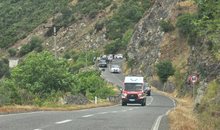
Name/Identification of the 23-year-old found dead near Shkopet Lake
2025-07-09 09:42:34
IKM action in Theth, residents come out in protest
2025-07-09 09:34:54
Reasons why the EU has not imposed new sanctions against Russia
2025-07-09 09:18:35
DW: Online scams increase human trafficking
2025-07-09 09:01:29

Reported missing by his father, 23-year-old found dead near Shkopet lake
2025-07-09 08:42:13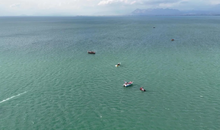

Horoscope, what do the stars have in store for you today?
2025-07-09 08:25:44
Sun and rain, Wednesday with unstable weather
2025-07-09 08:06:58
Posta e mëngjesit/ Me 2 rreshta: Çfarë pati rëndësi dje në Shqipëri
2025-07-09 07:52:02

Tabaku: Salianji bore a political cost that no one in Albania has borne
2025-07-08 22:36:15


Sekretet për të shijuar verën si një ‘profesionist’
2025-07-08 21:45:06

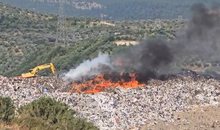
Albania's Waste Crisis: Toxic Smoke and Deep Governance Problems
2025-07-08 21:13:07
Alarming pollution in Fushë-Arrëz, copper factory waste turns the Fan River red
2025-07-08 21:07:14

Poll/ How do you assess the Prime Minister's intervention in local government?
2025-07-08 20:40:01
28 arrested in Italy and Spain for drug trafficking, including an Albanian
2025-07-08 20:24:14
Residents clash with police in Theth: We are on our land
2025-07-08 20:11:41
Death of 27-year-old in Lipjan, Osmani: To be investigated independently!
2025-07-08 20:06:52
Trump promises US will send more weapons to Ukraine
2025-07-08 19:54:25

EU targets health, education, police and cadastre as areas of corruption
2025-07-08 19:23:34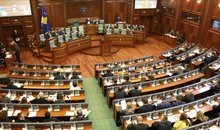

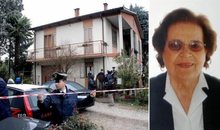


Salianji after his return: I did not oppose for functions, but for vocation
2025-07-08 18:23:15
Will he run in the 2029 elections? Here's how Salianji answers
2025-07-08 18:16:09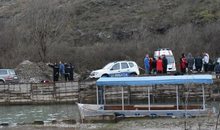
Boat captain drowns after diving into water to save two tourists in Shkodra
2025-07-08 18:05:12
Salianji from the DP headquarters: I brought a drug trafficker to justice
2025-07-08 18:03:26
After Fier, Rama "landes" in Durrës, dismissals expected
2025-07-08 17:53:32
Ervin Salianji arrives at the blue headquarters, welcomed by supporters
2025-07-08 17:45:12

EU approves final steps for Bulgaria's Eurozone membership
2025-07-08 17:43:06

Zhupa after Salianj's release: Inspiration for every opposition member
2025-07-08 17:19:39
Actor David Killick passes away
2025-07-08 17:09:23



Threatened with dismissals, Rama arrives at the Fier municipality
2025-07-08 16:39:19
Extreme temperatures temporarily close Acropolis in Greece
2025-07-08 16:30:34

A plot of cannabis is discovered in Mazha, Kruja
2025-07-08 16:13:48

Republika Srpska allocates additional 22 million euros for lobbying in the US
2025-07-08 15:52:04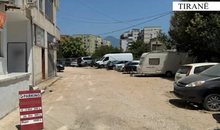

Spices that protect you from mosquitoes!
2025-07-08 15:30:03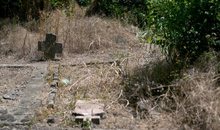

Accident on the Vlora-Qeparo axis, one injured
2025-07-08 15:11:52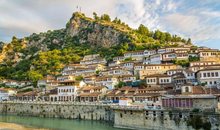
Berat, 17 years part of UNESCO's world heritage
2025-07-08 15:03:30
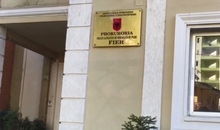

Cost of living increases, inflation rises to 2.4% in June, driven by food
2025-07-08 14:29:54
VIDEO/ Restaurant roof collapses in Italy, one victim and ten injured
2025-07-08 14:18:44
Requested release from cell, Supreme Court leaves Veliaj in prison
2025-07-08 14:07:41
TikTok shutdown/ Austrian media: Rama benefited politically from the app ban
2025-07-08 13:48:25
Acropolis temporarily closed due to heat
2025-07-08 13:31:09



Salianj's release/Berisha: He was politically condemned by Rama and Xhafa!
2025-07-08 13:00:13

Knife attack on Peshkopia Boulevard
2025-07-08 12:44:10


Fier Court decides on the conditional release of Ervin Salianj
2025-07-08 12:15:23
Cost of living increases, inflation rises to 2.4% in June due to food
2025-07-08 12:00:16


Requesting conditional release, Ervin Salianji arrives at the Fier Court
2025-07-08 11:16:36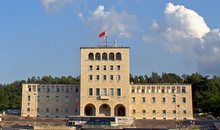
The first phase of university applications begins today
2025-07-08 11:10:52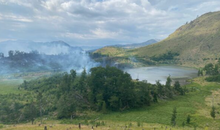
Fire in Lura, flames endanger the National Park
2025-07-08 10:53:43
Trump warns of 35% tariffs on Serbia and 30% on Bosnia and Herzegovina
2025-07-08 10:37:32
Thethi rooster and the dung cock
2025-07-08 10:24:01

Fire in Dukat endangers Llogara National Park
2025-07-08 10:01:39
International drug search: 36-year-old arrested in Durrës (NAME)
2025-07-08 09:50:48
Thethi, tourists "criticize" modern trend
2025-07-08 09:39:54
Fire on Mount Dukat still active, Llogara National Park at risk
2025-07-08 09:28:12
Veliaj's appeal to be heard today in the High Court
2025-07-08 09:16:02
"Bad sign for democracy"/ Parliament neglects reporting by institutions
2025-07-08 09:04:56
Today's hearing at the Fier Court, Salianji requests conditional release
2025-07-08 08:56:39


Horoscope, what do the stars have in store for you today?
2025-07-08 08:16:19
Weather forecast/ How temperatures will vary throughout the day
2025-07-08 08:02:37
Morning Post/ In 2 lines: What mattered yesterday in Albania
2025-07-08 07:48:30



